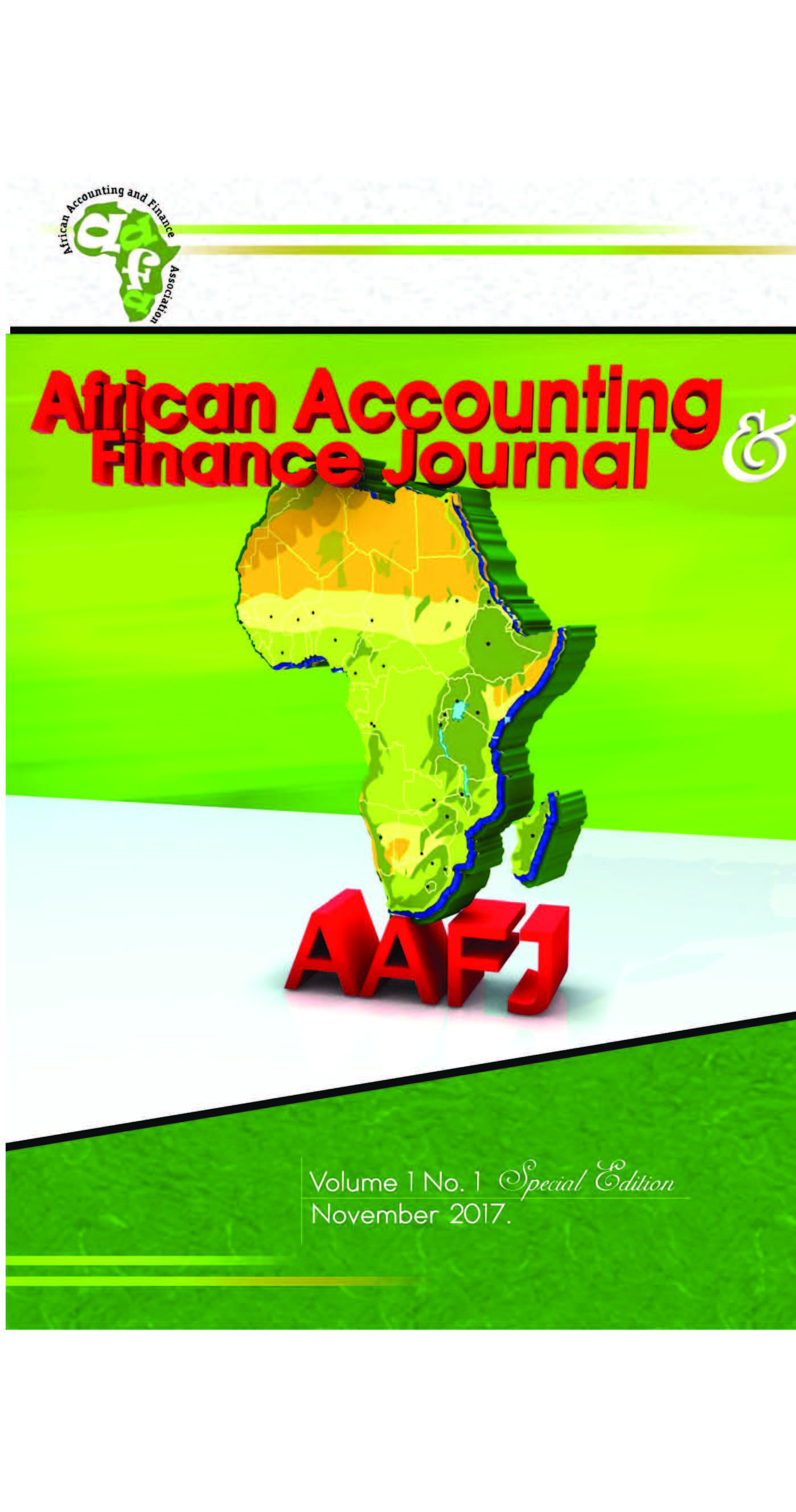Culture, Corruption and Sustainable Development in Zambia: An Institutional and ‘Two Publics’ Theory Perspective
DOI:
https://doi.org/10.26686/aafj.v1i1.9719Keywords:
Accountability, Corruption, Culture, Ekeh's theory of two publics, Institutional pluralism, Sustainable development, ZambiaAbstract
Purpose: This paper investigates accountability practices in terms of how these may be implicated within social and cultural environments. The paper further explores how the dialectical nature of social and cultural values in different environments may compromise the professional functioning of actors and institutions of accountability to explain extant accountability practices.
Design/Methodology/Approach: The study draws on the concept of institutional pluralism and Ekeh’s (1975) post-colonial theory of two publics to devise a critical lens for analysing the influence of social and cultural values on actors operating within Zambia’s institutions of accountability. Empirical data was collected through semi-structured interviews with 24 key respondents drawn from Zambia’s main institutions of accountability including Offices of the Auditor General and the Accountant General, the Public Accounts Committee of Parliament, the Judiciary, the Anti-Corruption Commission and Transparency International – Zambia. Archival evidence was also drawn upon to compliment primary data which was analysed qualitatively based on the main themes emerging from the data and in line with the conceptual framework.
Findings: Findings point towards the prominence of the dialectical nature between the social and cultural values emerging from the two publics. While professional ethics and values embraced within the civic public like financial regulations and good governance may promote sound accountability practices suitable for sustainable development, a number of undesirable practices including nepotism, favouritism and political patronage appear to be detrimental to the attainment of sustainable development in Zambia. The primordial public is equally seen to adversely influence accountability practices since vices like corruption and bribery seem to be embraced and promoted by members of the public.
Policy implications: These findings entail that a number of social and cultural practices within both publics may not promote sound accountability practices suitable for the attainment of sustainable development. From an accounting perspective, the study’s findings call for increased advocacy on good governance, encouraging globally and locally accepted accountability and reporting frameworks, and holding actors and institutions of accountability to account for their actions. In view of the dialectics in social values emerging from the two publics, such an accountability mechanism would require integrating globally and locally acceptable accountability norms and practices that foster sustainable development.
Originality: While many studies tend to rely on archival data, this study draws on primary evidence on matters of corruption and lack of accountability in Africa. The study is also among the first in accounting research to draw on institutional pluralism and Ekeh’s theory of two publics to depict dialectics embedded within social and cultural environments and their influence on accountability practices. Accordingly, the study contributes towards filling the gap of undertaking accounting research of a critical nature focused on African (Rahaman, 2010).
Downloads
Downloads
Published
Issue
Section
License
Papers and contributions become the legal copyright of African Accounting and Finance Association unless otherwise agreed



